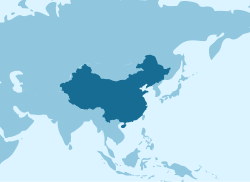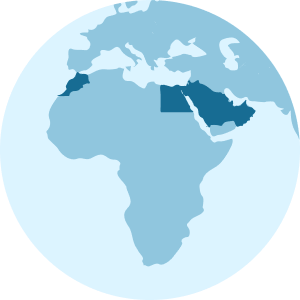Taxes in China: what you need to pay, how they work, and everything you should know if you work or own a business in the country.
China has one of the most comprehensive tax systems in the world. If you’re considering living, working, or investing in the country, understanding how taxes work in China will help you avoid complications and make clearer decisions from day one.
In this guide, I’ll explain the taxes you need to pay as an individual or a company, with updated examples, percentages, and clear explanations. I’ll also cover how taxes can be paid online in China.

Taxes for Individuals in China
In China, the Individual Income Tax (IIT) applies to both residents and non-residents who earn income within the country. This tax uses a progressive rate system ranging from 3% to 45%, depending on monthly income levels. The tax is calculated based on taxable monthly income, which is derived by subtracting allowed deductions from gross income.
Progressive IIT Rates in China (2025)
| Taxable Monthly Income (EUR/USD) | Tax rate | Quick Deduction (EUR/USD) |
| Up to €390 ($420) | 3% | 0 |
| €390 – 1,560 ($420 – 1,680) | 10% | €27 ($30) |
| €1,560 – 3,250 ($1,680 – 3,500) | 20% | €185 ($200) |
| €3,250 – 4,550 ($3,500 – 4,900) | 25% | €350 ($380) |
| €4,550 – 7,150 ($4,900 – 7,700) | 30% | €585 ($630) |
| €7,150 – 10,400 ($7,700 – 11,200) | 35% | €950 ($1,020) |
| Over €10,400 ($11,200) | 45% | €2,010 ($2,200) |
The tax is calculated on the taxable monthly income, which is determined by subtracting the standard deduction of €650 ($700) from the gross monthly income. Then, you find the relevant bracket in the table and apply the formula:
For example, if your gross monthly income is €1,950 ($2,100), your taxable income would be €1,300 ($1,400). This amount falls in the second bracket (€390 – 1,560) ($420 – 1,680) with a rate of 10% and a quick deduction of €27 ($30). Applying the formula:
(€1,300 ($1,400) × 10%) – €27 ($30) = €103 ($110)
Therefore, the tax to be paid would be €103 ($110) for that month.
This progressive system ensures that each person contributes according to their financial capacity, and there are additional deductions for education, healthcare, housing, and other concepts that can further reduce the tax burden.
For non-residents, the IIT applies only to income earned within China. However, if a non-resident stays in China for 183 days or more in a fiscal year, they may be considered a tax resident and be subject to IIT on their worldwide income.
Value Added Tax (VAT)
Although you might not see it reflected directly on your salary, VAT in China is present in almost everything you consume. It’s an indirect tax: The company selling the product or service pays it, but you bear it when you make a purchase, as it’s already included in the final price.
The general rate is 13%, but some sectors have reduced rates. For example, transport, construction, or certain public services apply a VAT of 9%, and services like consultancy, education, or technology, a VAT of 6%.This means that not everyone pays the same: it depends on the type of service or activity you offer.
Business Income Tax
If you’re self-employed in China and choose to register as a sole trader under this category, your income is not taxed like a large company, but it is subject to a specific tax. This model is designed for people who offer services or sell products regularly without establishing a formal company.
The tax you pay is calculated on your actual profits, that is, what remains after deducting the necessary expenses for your activity: materials, tools, licenses, transport, or any other work-related costs.
The rates are progressive, ranging from 5% to 35% annually, depending on how much you earn. The higher your net income, the higher the percentage you’ll have to pay.
Social security contributions
If you work in China, part of your salary goes to social security, an obligatory system that covers health, pensions, unemployment, and housing. Both you and your employer share this contribution, and it usually represents between 20% and 25% of your gross salary, depending on the city. While it’s not a tax as such, it reduces your net income, but in return, you gain access to public services and benefits that can be useful if you plan to stay longer.
Tax on Interest, Dividends, and Royalties
Passive income, such as bank interest, dividends from shares, and royalties from copyrights or intellectual property, is subject to tax in China. The standard tax rate for this income is usually 20%, although it can vary depending on international tax treaties or local policies.
Taxes for Legal Entities or Companies in China

If you’re considering starting a business in China or expanding your operations there, it’s essential to know the main taxes you’ll have to pay. The Chinese tax system for companies includes general taxes like corporate tax, VAT, and other specific charges based on the activity you carry out. Below, I’ll explain the most relevant ones:
Corporate income tax
The corporate tax in China applies to the profits generated by a company, and the general rate is 25%. However, not all companies pay this rate. If your company falls under certain special categories, you could qualify for a reduced rate of 15%, which significantly lightens your tax burden.
One of the most common categories that qualifies for this reduction is high-tech companies. To qualify, your company must be officially registered and meet several requirements. For example, you need to invest a minimum percentage in research and development (R&D), have registered intellectual property, and have a portion of your income coming directly from products or services developed by your team.
Corporate VAT
In China, if you own a business, the VAT you apply depends on the type of activity you carry out:
- 13% is the general rate (e.g., for the sale of goods).
- 9% applies to sectors like construction, transport, or financial services.
- 6% applies to activities like consultancy, technology, creative services, or education.
For example, if you sell a web design service for €1,300 ($1,400) with a VAT of 6%, you’ll charge your client €1,378 ($1,484) (including VAT). Then, you declare and pay that €78 ($84) to the tax authorities. If you paid €39 ($42) in VAT for tools or services used to do the work, you can deduct that, and you only pay the difference.
Stamp Duty
This tax applies to commercial contracts, financial documents, and significant transactions. It’s not very high, but you should consider it, especially if you sign high-value agreements. Rates typically range from 0.005% to 0.1% of the contract value, depending on the type of document (e.g., sales contracts, loans, or stock transfers).
Tax on Natural Resource Usage
This tax applies to companies that exploit natural resources such as minerals, oil, natural gas, water, and others. The rates vary depending on the type of resource and the region, and are designed to promote the sustainable use of natural resources.
For example, a mining company extracting iron ore in China will need to pay this tax, and the specific rate will depend on the quantity extracted and the location of the mine.
Urban and Rural Real Estate Tax
This tax applies if your company owns or rents properties (offices, commercial premises, warehouses) in China.
- If you’re the owner, a 1.2% tax applies to the original value of the property, although there may be regional deductions (sometimes it only applies to 70% of the original value).
- If you rent the property, a 12% tax applies to the annual rental value.
Depending on the activity and type of company, the following may also apply:
- Urban maintenance and education tax: between 3% and 5% of VAT paid.
- Land transfer tax: only in real estate transactions, ranging from 30% to 60% of the profit made.
- Tax on vehicles and vessels: if the company owns land or river transport.
It’s recommended to consult with a local tax advisor or the Chinese tax authorities to get detailed and up-to-date information on the taxes applicable to your company, as rates and regulations can vary depending on the region and type of economic activity.
How to Pay Taxes Online in China
If you’re going to live, work, or do business in China, accessing digital platforms for the tax system can save you time and a lot of headaches. The good news is, yes, it’s possible to pay taxes online, whether you’re an individual or representing a company.
If you’re paying as an individual, you can use the official Individual Income Tax (IIT) app, available in both English and Chinese. From there, you can declare your income, apply deductions, and pay directly from your bank account. The process is intuitive and is usually linked to your tax identification number.
If you own a business in China, it’s most common to file your taxes directly from the official State Administration of Taxation portal (chinatax.gov.cn). From there, you can manage taxes such as VAT, corporate tax, and other contributions relevant to your activity.
To pay taxes online in China, you must be registered as a taxpayer, have your tax number, and a local bank account. Although the portal has an English version, the procedures are in Chinese. If you’re not familiar with the language, it’s best to use a translator or seek local assistance to avoid mistakes.
You can also pay through online banking with banks such as ICBC or Bank of China, which are linked to the tax system and make the process easier.
Stay connected and manage your taxes hassle-free
For tasks like paying taxes online, having a stable connection from day one can make all the difference, especially if you need access to official portals or your online banking. Holafly’s monthly plans offer a practical solution if you’re in China or frequently travel between countries. They allow you to stay connected without technical complications in over 170 countries, making it easy to manage everything securely and without interruptions.
Important: If you are a frequent traveler and want to stay connected without worrying about expensive roaming or looking for a new SIM at every destination, Holafly’s subscription plans are for you. With a single eSIM, enjoy internet in more than 160 countries for a fixed price and no surprises on your bill. Travel without limits and connect easily and securely! 🚀🌍

On the other hand, for short stays, Holafly’s eSIM for China provides unlimited data for the days you need it.
Frequently Asked Questions About Taxes in China
Yes, if you generate income in China, even as a temporary foreigner, you may be required to pay taxes. It depends on how long you stay and whether you exceed 183 days, which is the threshold for being considered a tax resident.
Failing to file your tax return can result in penalties, surcharges, or even problems renewing your visa if you’re a foreigner. It’s best to keep everything up to date, even if you don’t owe much.
Yes. Any company operating in China is subject to VAT, which varies between 6% and 13% depending on the activity.
The first €650 ($700) per month are exempt. This amount is automatically deducted before calculating what you need to pay.
Yes. Some taxes, like social security contributions or property taxes, can vary depending on the province or municipality. It’s always good to check local regulations or seek professional help if you have any doubts.
Before leaving the country, it’s advisable to settle your final tax declaration to close your tax situation, avoid debts, and, if applicable, request a refund. If you leave it pending, you may encounter issues if you return or need official documents. It’s best to handle this in advance, either through the app or with local assistance.














































 Pay
Pay  Language
Language  Currency
Currency 


















 No results found
No results found









